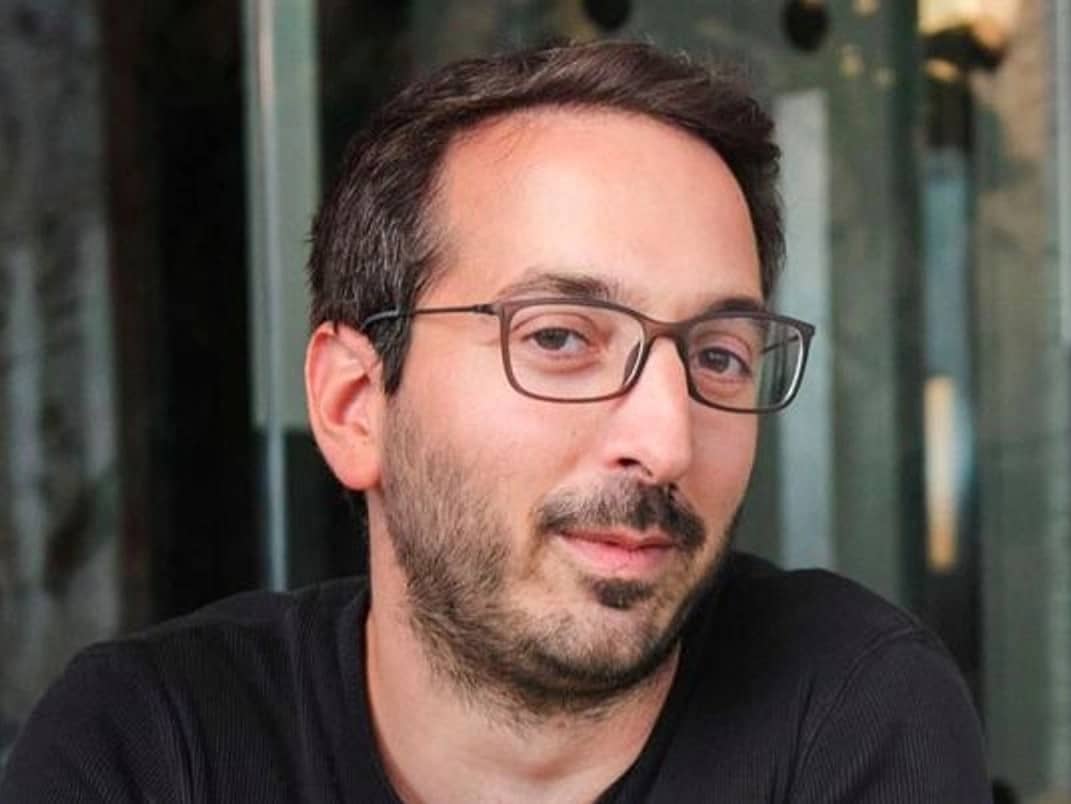위키 구독하기
Share wiki
Bookmark
George Danezis
0%
George Danezis
George Danezis는 Sui 블록체인 및 Walrus Protocol을 개발한 회사인 Mysten Labs의 공동 창립자이자 최고 과학자입니다. 그는 컴퓨터 과학자이자 University College London 컴퓨터 과학과의 보안 및 개인 정보 보호 엔지니어링 교수입니다. [1][2]
교육
George Danezis는 케임브리지 대학교에서 컴퓨터 보안 및 암호학 박사 학위를 2004년에 취득하여 이후 런던 대학에서 교수로 재직할 수 있었습니다. 박사 과정 이전에는 같은 기관에서 컴퓨터 과학 학사 학위를 받았습니다.
영어에 능통할 뿐만 아니라 프랑스어와 그리스어에도 능통한 George는 브뤼셀 유럽 학교에 다녔으며, 1997년에 유럽 학사 학위를 받았습니다.[1][2]
경력
George Danezis는 Evan Cheng, Adeniyi Abiodun 및 Sam Blackshear와 함께 Mysten Labs를 공동 창립했으며 현재 최고 과학자로 재직 중입니다.
또한 그는 Alan Turing Institute의 Faculty Fellow 직책을 맡고 있습니다. University College London에서 10년 이상 재직하면서 2016년부터 보안 및 개인 정보 보호 엔지니어링 교수로 재직했으며 이전에는 보안 및 개인 정보 보호 엔지니어링 Reader로 근무했습니다.
이전에는 Facebook에서 연구 과학자로 근무하며 Novi 팀에 기여했습니다. 그는 또한 Vega Protocol에서 자문 역할을 했으며 Chainspace를 공동 창립하여 거의 1년 동안 연구 책임자로 이끌었습니다.
George의 학문적 여정에는 Microsoft Research Cambridge에서 박사후 연구원으로 시작하여 6년 동안 연구원으로 근무한 경력이 포함됩니다. 그 이전에는 K.U. Leuven에서 방문 연구원으로 있었고 케임브리지 대학교에서 여러 역할을 수행했습니다.[1][2][6]
출판물
George Danezis의 출판물에는 개인 정보 취약성을 조명하는 "LOGAN: Membership Inference Attacks Against Generative Models" (2019)와 분산 원장 기술의 개인 정보 문제를 다루는 "Coconut: Threshold Issuance Selective Disclosure Credentials with Applications to Distributed Ledgers" (2019)가 있습니다.
또한 "Scoping the Cyber Security Body of Knowledge" (2018)는 사이버 보안에 대한 담론 형성에 대한 그의 참여를 반영합니다. [6][7][8]
수상
2014년 George는 영국 컴퓨터 학회 Fellow로 선정되는 영예를 안았습니다. 이 영예는 표준 발전, 전략적 리더십, 모범 사례 및 다른 사람들에게 이러한 원칙을 장려하는 데 헌신한 개인에게 수여됩니다.[5][2][1]
Walrus Protocol
George Danezis는 Web3 환경에서 데이터 저장 및 보안 방식을 혁신하는 것을 목표로 하는 분산 스토리지 솔루션인 Walrus Protocol의 배후에 있는 인물입니다. 이 프로토콜은 Sui 블록체인을 기반으로 구축되었으며 기존 스토리지 방식에 비해 상당한 이점을 제공하는 Red Stuff라는 새로운 데이터 인코딩 알고리즘을 도입했습니다.
Walrus Protocol의 Red Stuff 알고리즘은 초당 기가바이트의 데이터를 인코딩할 수 있을 정도로 빠르도록 설계되었습니다. 전체 파일을 다운로드하지 않고도 누락된 데이터 청크를 효율적으로 재구성할 수 있는 고유한 이중 인코딩 체계를 사용하여 기존 방식보다 리소스 효율성이 높습니다.
이 프로토콜은 파일을 여러 개의 작은 청크로 분할하여 스토리지 노드에 분산시켜 데이터를 저장하여 복원력을 제공하고 재인코딩을 통해 사용 가능한 청크에서 파일을 재구성할 수 있도록 합니다. 이 접근 방식은 보안 및 분산화를 유지하면서 기존 방식에 비해 네트워크에 약 5배 적은 데이터를 저장합니다.
Walrus Protocol은 다음을 포함한 다양한 애플리케이션을 지원하도록 설계되었습니다.
- AI 데이터 세트 스토리지 및 검증
- 블록체인 기록 스토리지
- 웹사이트 및 풍부한 미디어 콘텐츠
- 소셜 네트워킹 애플리케이션
- 티켓팅 및 구독 서비스
이 프로토콜은 이미 Breaking the Ice 해커톤에서 개발된 Walrus Pass (티켓팅 및 구독 앱) 및 Link Forge (소셜 네트워킹 앱)와 같은 프로젝트를 통해 실질적인 애플리케이션을 보았습니다.
Walrus Protocol은 Standard Crypto가 주도한 펀드레이징 라운드에서 1억 4천만 달러를 모금하여 상당한 자금을 확보했습니다. 추가 투자자로는 a16z crypto, Electric Capital, Creditcoin, Lvna Capital, FTDA, Protagonist, Karatage, RW3 Ventures, Comma3 Ventures 및 Raptor Group이 있습니다. [9][12][10] [11] [12]
인터뷰
George Danezis의 통찰력 #01
2025년 3월 1일, ETHDenver YouTube 채널에서 George Danezis가 블록체인 생태계 내에서 분산 스토리지에 대한 그의 관점을 논의한 인터뷰가 방송되었습니다. 그는 Walrus 프로젝트를 중앙 집중식 스토리지 및 불완전한 온체인 기록으로 인해 NFT 및 분산 애플리케이션 (dApp)에 대한 연결이 사라질 수 있는 Web3 환경에서 데이터 손실 문제에 대한 잠재적인 솔루션으로 설명했습니다.
토론 중에 George Danezis는 Walrus가 Sui 블록체인과 통합된 분산 블롭 스토어로 설계되었다고 설명했습니다. 이러한 통합은 관련 미디어, 메타데이터 및 감사 로그가 온체인에 저장되도록 보장하여 데이터 사라짐에 대한 우려를 해결합니다. 그는 데이터 무결성 및 가용성을 개선하고 데이터 복제 비용을 줄이기 위한 삭제 코딩 기술의 사용에 주목했습니다.
George Danezis는 또한 개발자가 스마트 계약을 통해 데이터 스토리지, 보존 정책 및 거버넌스 구조를 관리할 수 있는 플랫폼 인터페이스를 언급했습니다. 이 기능은 온체인 거버넌스 및 오프체인 미디어 구성 요소를 모두 통합하는 분산 애플리케이션 개발을 지원합니다.
인터뷰는 또한 Walrus와 관련된 기존 파트너십을 언급하고 분산 음악 배포에서 콘텐츠 스토리지에 이르기까지 다양한 애플리케이션을 설명했습니다. 또한 George는 스토리지 노드를 추가하면 전체 용량과 데이터 작업 대역폭이 증가할 수 있다고 논의하면서 암호화된 스토리지 솔루션에 대한 계획도 언급했습니다.
인터뷰에 따르면 Walrus는 중앙 집중식 스토리지 및 데이터 손실과 관련된 문제를 해결하는 데 도움이 될 수 있는 블록체인 공간에서 데이터 스토리지를 위한 인프라를 제공하기 위한 것입니다. [13]
Walrus 및 Sui #02
2025년 2월 10일, Altcoin Daily 채널에서 Mysten Labs의 공동 창립자이자 최고 과학자인 George Denezis는 Sui 생태계 내에서 블록체인 기술의 발전에 대한 개요를 제공했습니다. 그는 Sui가 총 18억 달러의 잠긴 가치를 달성했으며 분산 금융 프레임워크 내에서 확장성 및 효율성이 측정 가능한 성장을 경험했다고 언급했습니다.
컴퓨터 과학 배경과 Facebook 및 Ethereum 프로젝트에서 이전 작업 경험을 바탕으로 George는 확장성, 프로그래밍 가능성 및 사용자 인터페이스 요소의 통합을 Sui의 차별화 요소로 설명했습니다. 토론 중에 그는 Sui 네트워크와 통합된 분산 블롭 스토리지 프로토콜인 Walrus를 발표했습니다. Walrus는 데이터 안정성 및 무결성을 유지하기 위해 스토리지 노드 네트워크를 사용하여 기존 중앙 집중식 솔루션에 대한 분산 스토리지 대안을 제공하기 위한 것입니다.
George는 AI 모델 검증, 미디어 자산 관리 및 소셜 네트워크 데이터 스토리지와 같은 다양한 애플리케이션에 대한 데이터 진위성을 보장하고 개인 정보 보호 조치를 제공하는 기능을 포함하여 Walrus의 여러 기술적 기능을 간략하게 설명했습니다.
토론에서는 또한 블록체인 부문 내의 협업 기회를 언급하면서 개발자와 기업가에게 Walrus 플랫폼의 지속적인 개발에 기여하도록 초청했습니다. 인터뷰에 따르면 이러한 협력 노력은 스마트 계약 및 경제 모델에 대한 균형 잡힌 생태계를 달성한다는 목표로 분산 애플리케이션의 미래 진화에 필수적인 것으로 간주됩니다.
전반적으로 인터뷰는 블록체인 기술의 맥락에서 Sui 네트워크와 Walrus 프로토콜의 현재 상태 및 의도된 애플리케이션에 대한 설명을 제시했습니다. [14]
잘못된 내용이 있나요?
